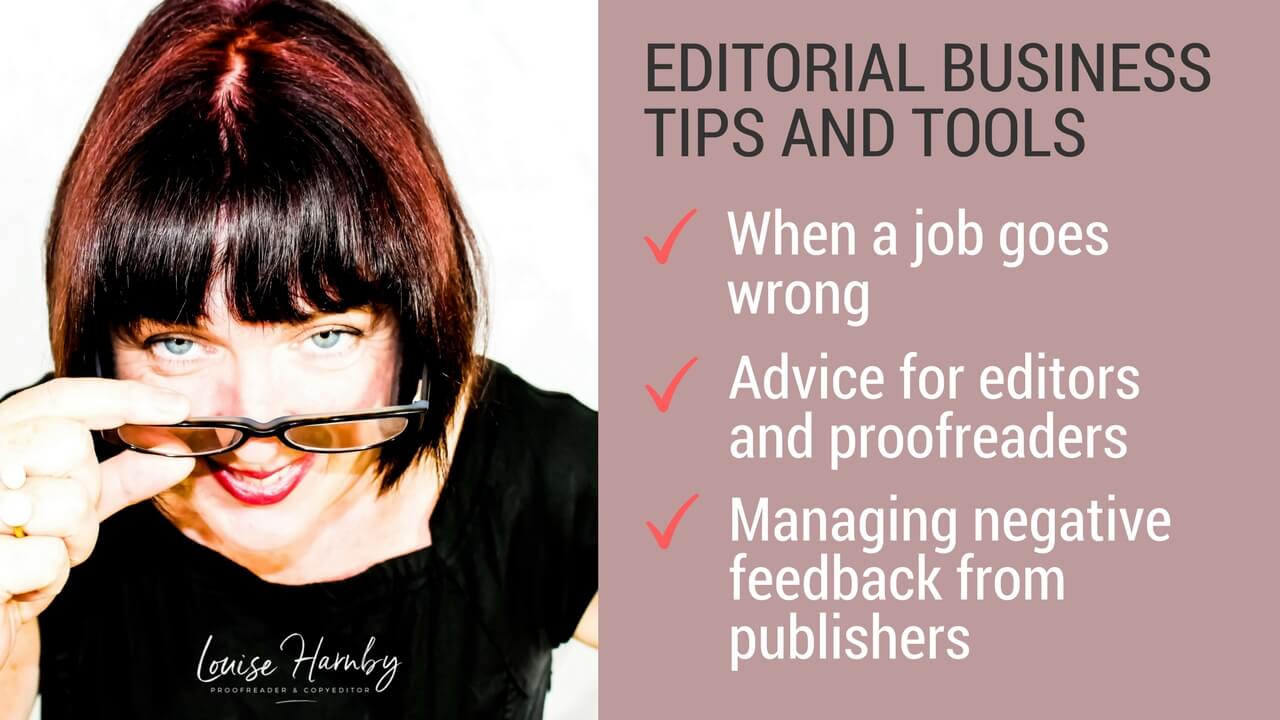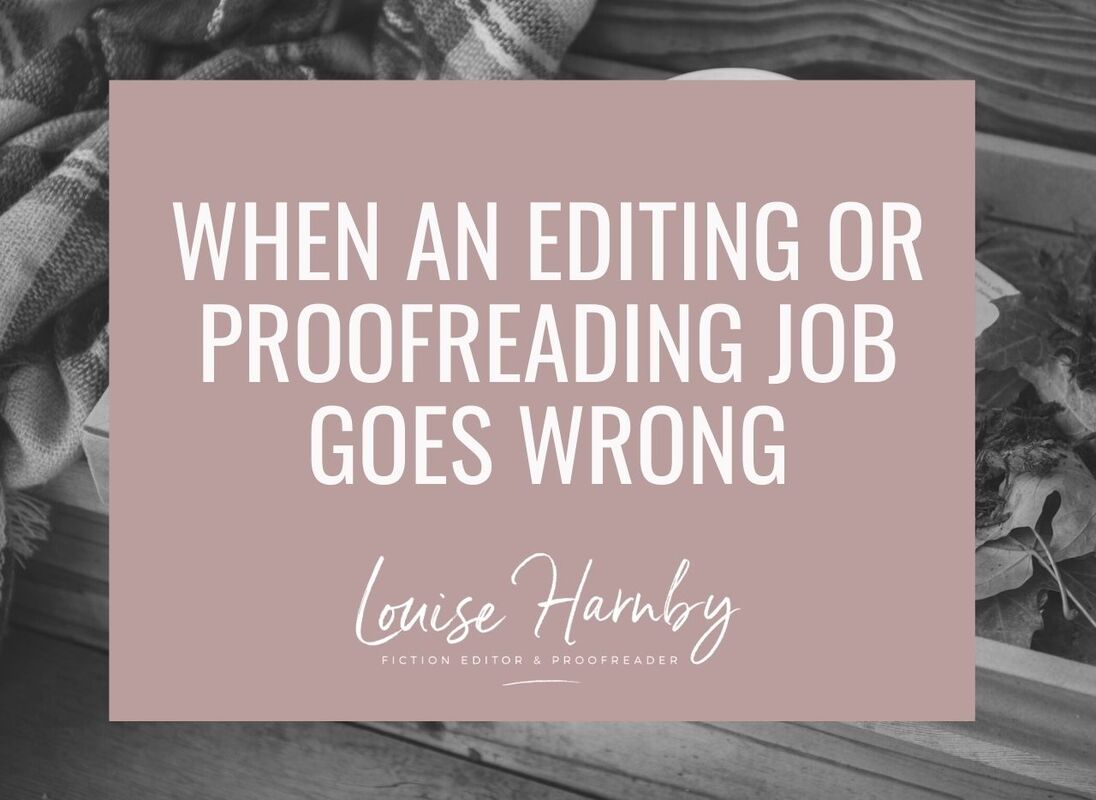|
An in-house editor discusses how he handles receipt of substandard work from a freelancer. Also worth noting is his advice on how a freelancer might interpret a lack of contact from an in-house editor and what to do about it ...
Philip Stirups sheds light on his experiences of editorial production. To be clear, Philip’s contributions are from the point of view of a publishing professional, broadly speaking. So while some of the things he has to say are informed by his experiences within the UK company for which he currently works, his residency here is not in the capacity of a representative of that particular publishing house. Over to Philip ...
At the outset, I want to say that the majority of proofreading jobs I receive back from freelancers are good. However, in a handful of instances, a job comes back and, unfortunately, it isn't up to scratch. Problems could include:
From an editorial perspective, this can cause an array of different problems. First, an unsatisfactory proofread will usually lead to the in-house editor having to step in to compensate, which can in turn have an adverse impact on the book schedule. A second problem, from an in-house editorial perspective, is even trickier: how to give feedback in an honest, yet tactful, way. Breaking the bad news … On the surface, the simple solution to this seems to be: "tell it as it is". However, this is easier in theory than in practice. The problem is that it’s quite difficult to convey tone via email. I want to get across what has been missed, but in such a way as not to seem condescending. Furthermore, I don't want the freelancer to go away thinking they've done a bad job, when overall they haven’t. I could use the phone in order to avoid tone problems. However, I believe that an email is more beneficial to the freelancer because it provides them with a written record of the issues; this means they have something to refer back to when they carry out future work for the in-house editor. Receiving criticism, albeit constructive feedback, can be a shock for the freelancer, and very upsetting. I don’t want my suppliers to lose confidence when I have to tell them a job didn’t meet my requirements. Instead, I want to communicate the message in a way that enables them to move forward, strong in the knowledge that by attending to the highlighted problems our working relationship can continue satisfactorily. Email gives them the time and space to digest the feedback I've offered in a non-confrontational way. In cases where the work continues to be substantially below expectations, the clearest feedback a freelancer will receive may be represented by them not being offered further work. This isn't to say that, overall, they are not good at what they do – rather, each job needs to be assessed on an individual basis, and when a freelancer is unable to use critical feedback to meet the in-house editor’s needs, the editor may decide that the supplier is no longer a good fit. Things aren’t always what they seem … Being offered no work, or only intermittent work, is not always an indication of poor fit or poor-quality work. It can often simply be, as I have often experienced, a case of there being no work available at the time. Publishers' production workflows vary. A large house, with multiple imprints, that publishes mass-market paperback fiction may have a steady stream of projects to offer freelancers throughout the year, while a smaller independent academic press specializing in social science monographs or student handbooks may have busy and quiet spells in its production process. It may also be that the freelancer had regularly turned down work, owing to the demands of their schedule. In this case, the in-house editor may have taken the decision to focus on other suppliers who are more often available. It’s not a question of poor fit or poor quality; rather, the freelancer has simply slipped out of the in-house editor's mind. If you’ve not been offered work from one of your in-house editors for a longer time than you feel comfortable with, get in touch. It never hurts to drop an editor a message to ask whether they have any projects. The worst they can say is “no”, and even if they don't have anything to offer you now, but are happy to work with you again, you’re back on their radar. Don’t be afraid to ask … I cannot say there is a right or wrong way to give feedback. However, I firmly believe that openness on both sides is the key. I am willing to admit that my freelancer briefs could be improved. If you ever want feedback from your editor, just ask ... And remember: it is never personal; it’s about meeting a set of business requirements. We in-house editors and freelancers are on the same team.
Louise Harnby is a line editor, copyeditor and proofreader who specializes in working with crime, mystery, suspense and thriller writers.
She is an Advanced Professional Member of the Chartered Institute of Editing and Proofreading (CIEP), a member of ACES, a Partner Member of The Alliance of Independent Authors (ALLi), and co-hosts The Editing Podcast. Visit her business website at Louise Harnby | Fiction Editor & Proofreader, say hello on Twitter at @LouiseHarnby, connect via Facebook and LinkedIn, and check out her books and courses.
1 Comment
22/6/2015 03:32:25 am
Another interesting article, Philip. It is particularly interesting that you take the time to give feedback. I have worked for several dozen presses over the years and can recall only once receiving feedback -- even though I always tell the presses that if a problem is discovered, let me know and we will correct it.
Reply
Leave a Reply. |
BLOG ALERTSIf you'd like me to email you when a new blog post is available, sign up for blog alerts!
TESTIMONIALSDare Rogers'Louise uses her expertise to hone a story until it's razor sharp, while still allowing the author’s voice to remain dominant.'Jeff Carson'I wholeheartedly recommend her services ... Just don’t hire her when I need her.'J B Turner'Sincere thanks for a beautiful and elegant piece of work. First class.'Ayshe Gemedzhy'What makes her stand out and shine is her ability to immerse herself in your story.'Salt Publishing'A million thanks – your mark-up is perfect, as always.'CATEGORIES
All
ARCHIVES
July 2024
|
|
|
|

















 RSS Feed
RSS Feed





